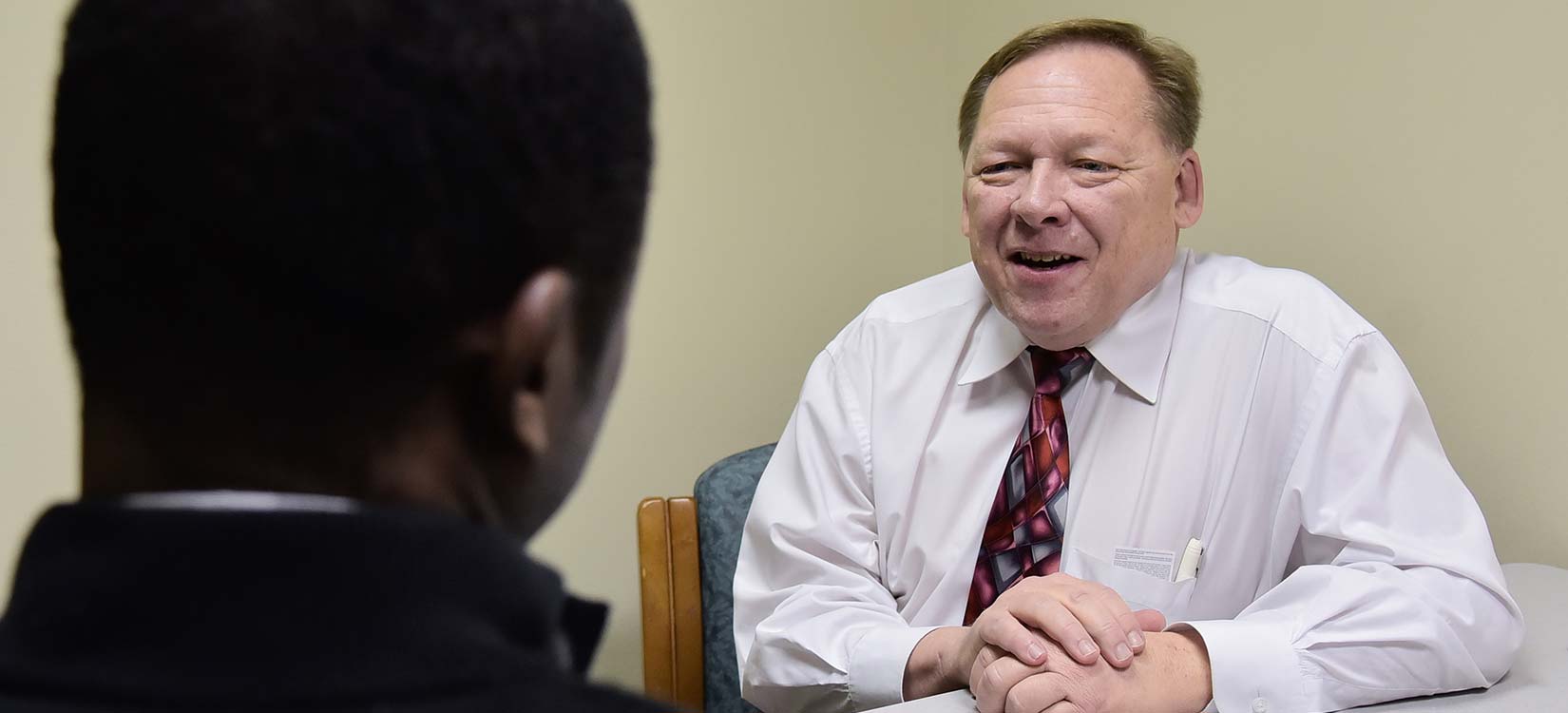Individualized support model helps restore confidence and independence after brain injury

Many of the clients who receive assistance through the Traumatic Brain Injury (TBI) Network at Ohio State University’s Wexner Medical Center Neurological Institute have fallen through the cracks at other agencies. They may be homeless or victims of substance abuse; some have spent time in prison and bear the stigma and trauma of that experience, in addition to the cognitive impairments that result from their TBI.
Despite these challenges, the IPS approach used by counselors and case managers at the TBI Network has shown remarkable results—superior to those of other agencies in the state—in helping Ohioans with TBI get back on their feet and back to work. “We meet our clients wherever they are,” says counselor Debbie Joseph. “It’s a non-shaming environment.”
"Darren" (name withheld for privacy) is a 51-year-old African American male who struggled with finding employment for many years because of multiple TBIs he suffered throughout his life, the first of which happened when he was a child. Other assault-related brain injuries happened while he served more than a decade in prison. Upon his release from prison, "Darren" took a job in construction and suffered TBI again, this time from equipment on the job site.
He came to the TBI Network as a resident in a homeless shelter who struggled with short-term memory deficits, uncontrolled anger, and a stuttering speech impediment exacerbated by stress. Despite these challenges, "Darren" was determined to get a job, and he wanted one that would require him to learn a new skill.
The holistic approach of the TBI Network counselors helped him get on the right path. "Darren" completed a full-time, 4-week floor care training program and graduated with OSHA certification. His counseling team then offered him a new suit for interviews, coaching him on the skills he’ll need to make a good impression on employers. Already, the change has been dramatic: "Darren’s" stutter has improved, he smiles often and without reserve, and his confidence shows in playfulness and humor. His short-term goal is to get a job, hopefully within the next couple of months; the next step is to save enough money to move out of the homeless shelter and into his own apartment.

